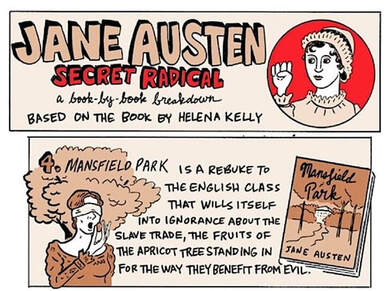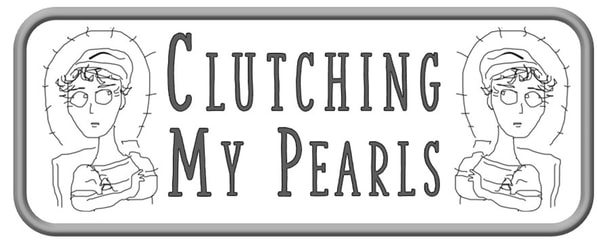| This blog explores social attitudes in Jane Austen's time, discusses her novels, reviews forgotten 18th century novels, and throws some occasional shade at the modern academy. The introductory post is here. My "six simple questions for academics" post is here. I'm currently doing a series about the significance, if any, in Austen's choice of the name "Mansfield" for her novel Mansfield Park. |
 Graphic by Nathan Gelgud (detail)
Graphic by Nathan Gelgud (detail) Well, if anti-slavery messages are why we pick up Mansfield Park, we don't we toss it aside and read Alethea Lewis instead? Because she doesn't go with subtle veiled allusions. She doesn't hold back on her opinions of slave traders and plantation owners. We meet enslaved people in The Microcosm and we travel to Jamaica. Further, Lewis's novel was published before the slave trade (but not slavery) was outlawed, while Mansfield Park was published seven years after. Thus, Fanny Price asking her uncle a question about the slave trade, years after the trade was made illegal, is not exactly a daring thing to do. Regular readers of my blog will know this is something I've banged on about quite a lot, but I had to mention it again after discovering The Microcosm. The title presumably means, "this novel is a microcosm of society today."...
And, Lewis uses the name "Mansfield" in her novel! I personally don't think she is intending a reference to Lord Mansfield, but others may disagree.
If you've been told it was risky for Austen to speak out against slavery, and that she could only hint at it by speaking of "Moor Park Apricots," if you've been told she was brave for speaking out against slavery, check out what Lewis wrote, below (see "Editorial")







 RSS Feed
RSS Feed